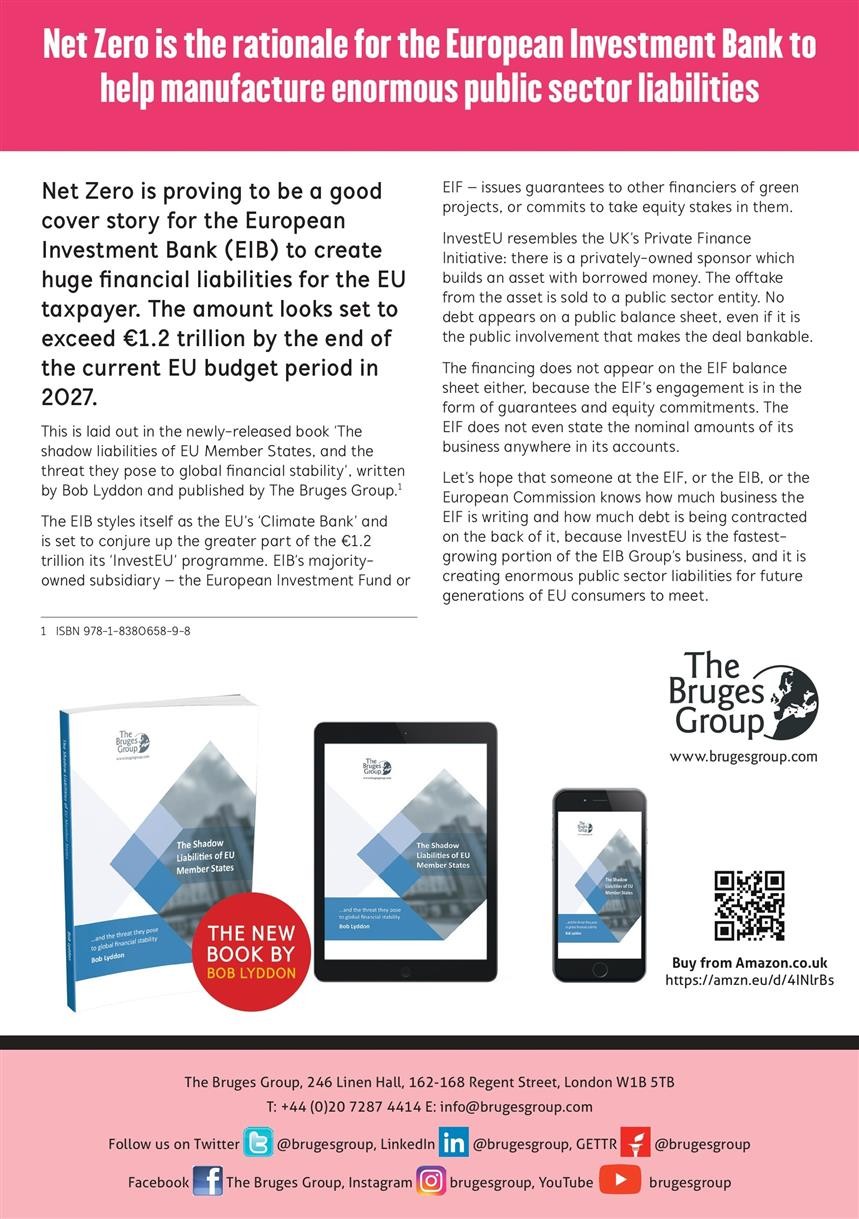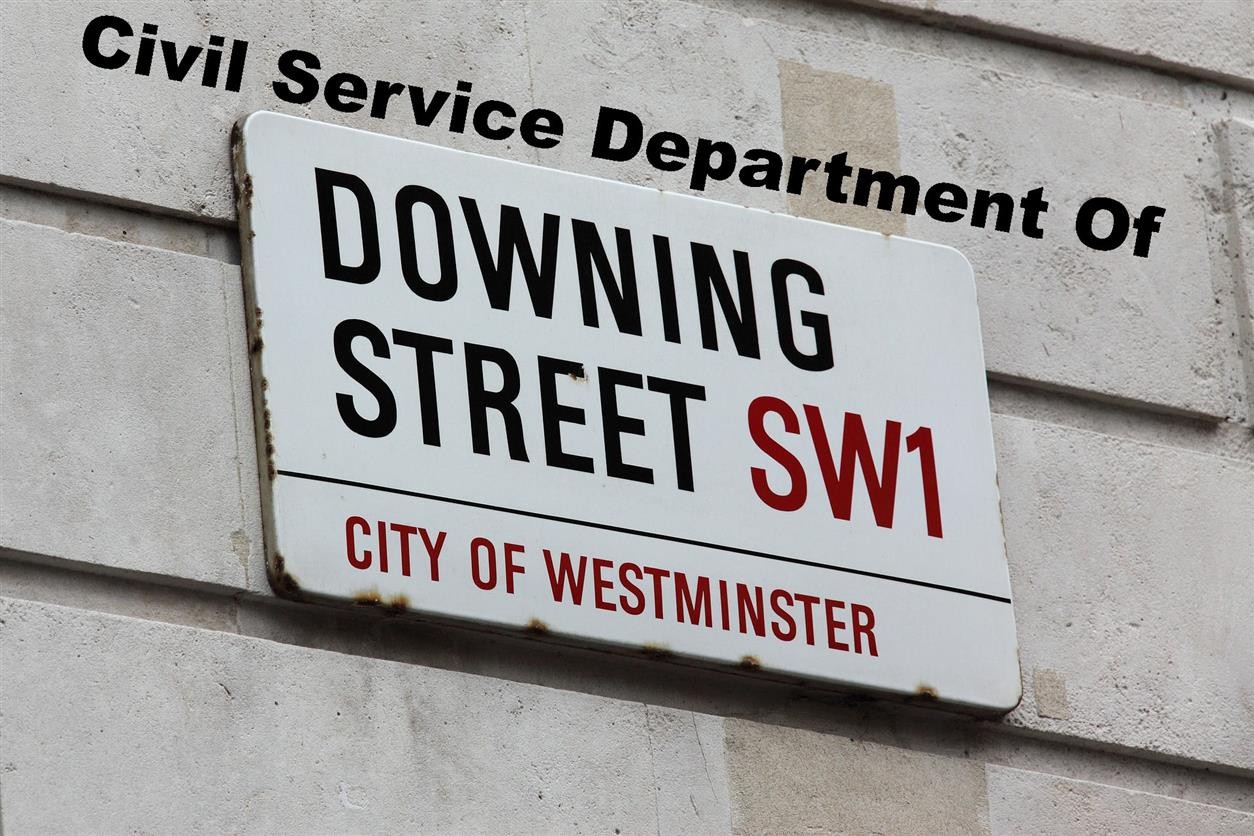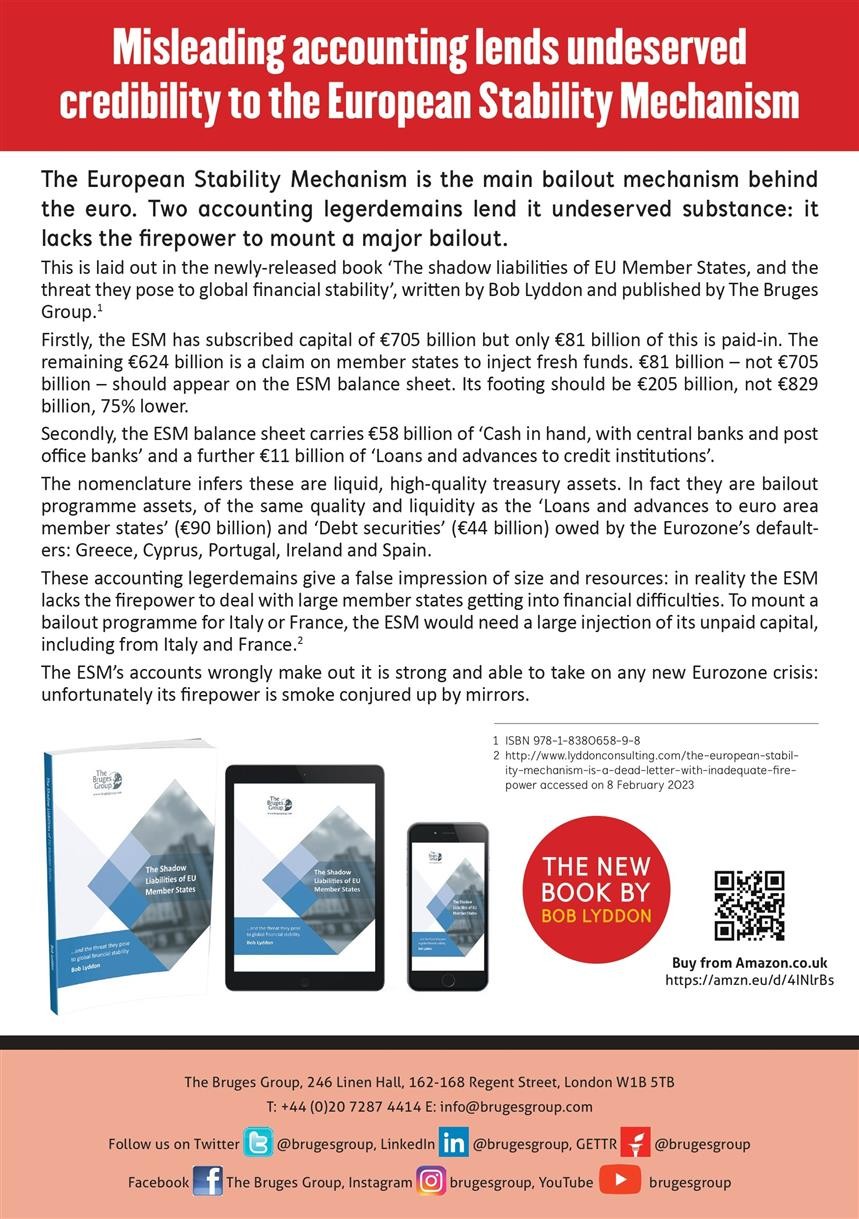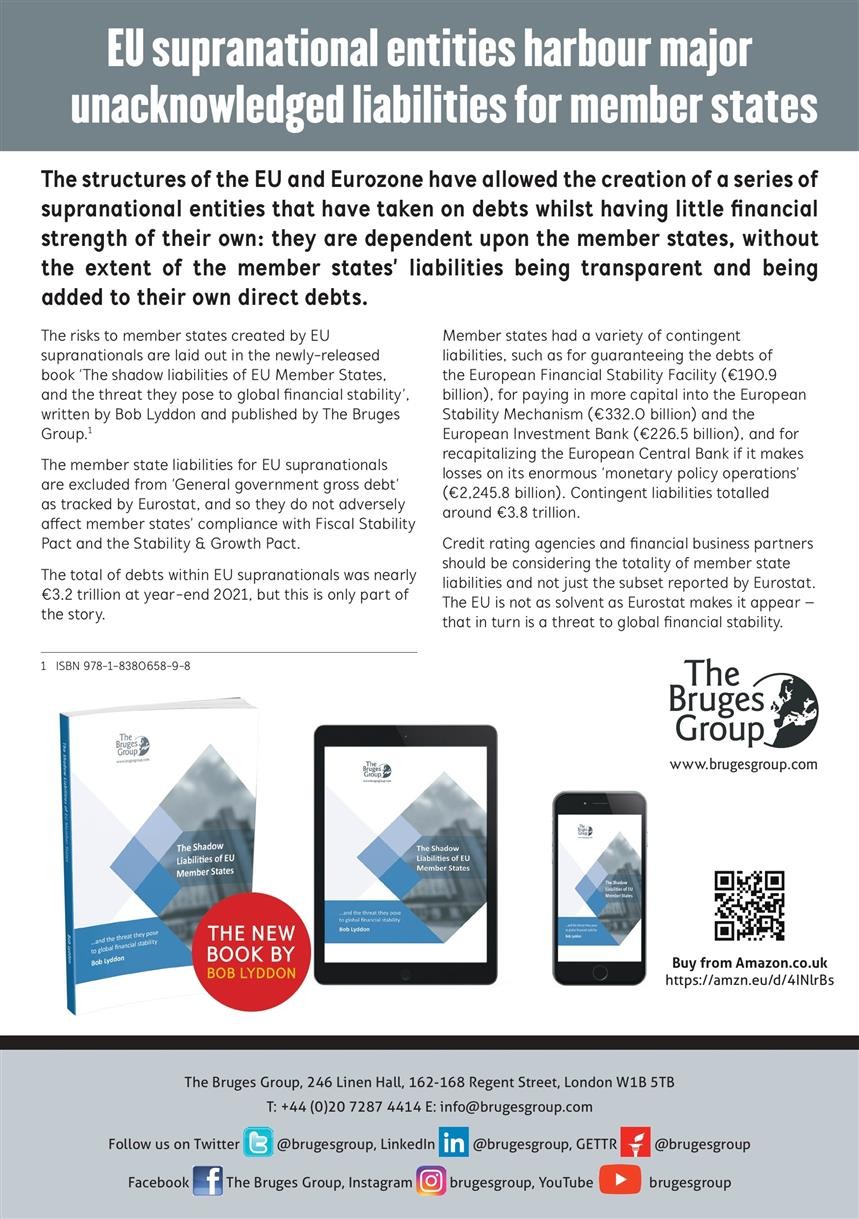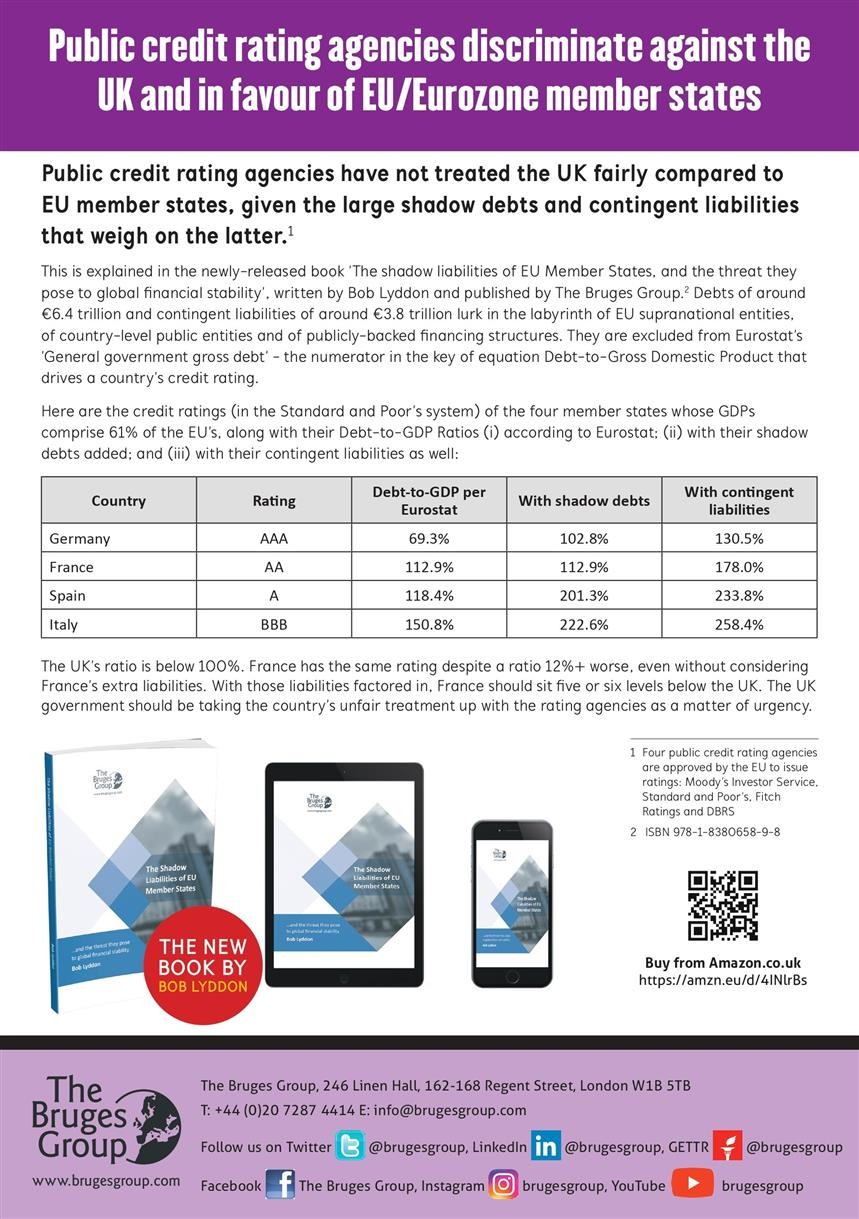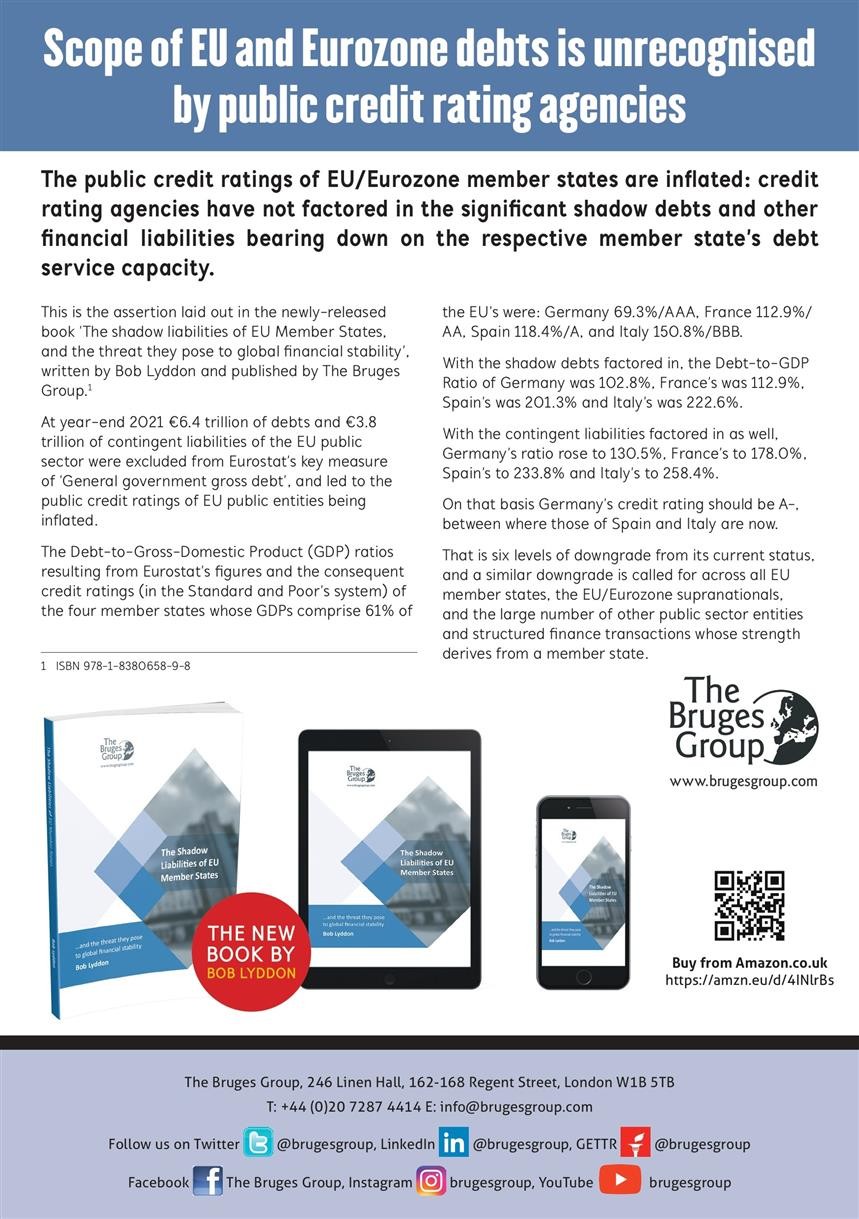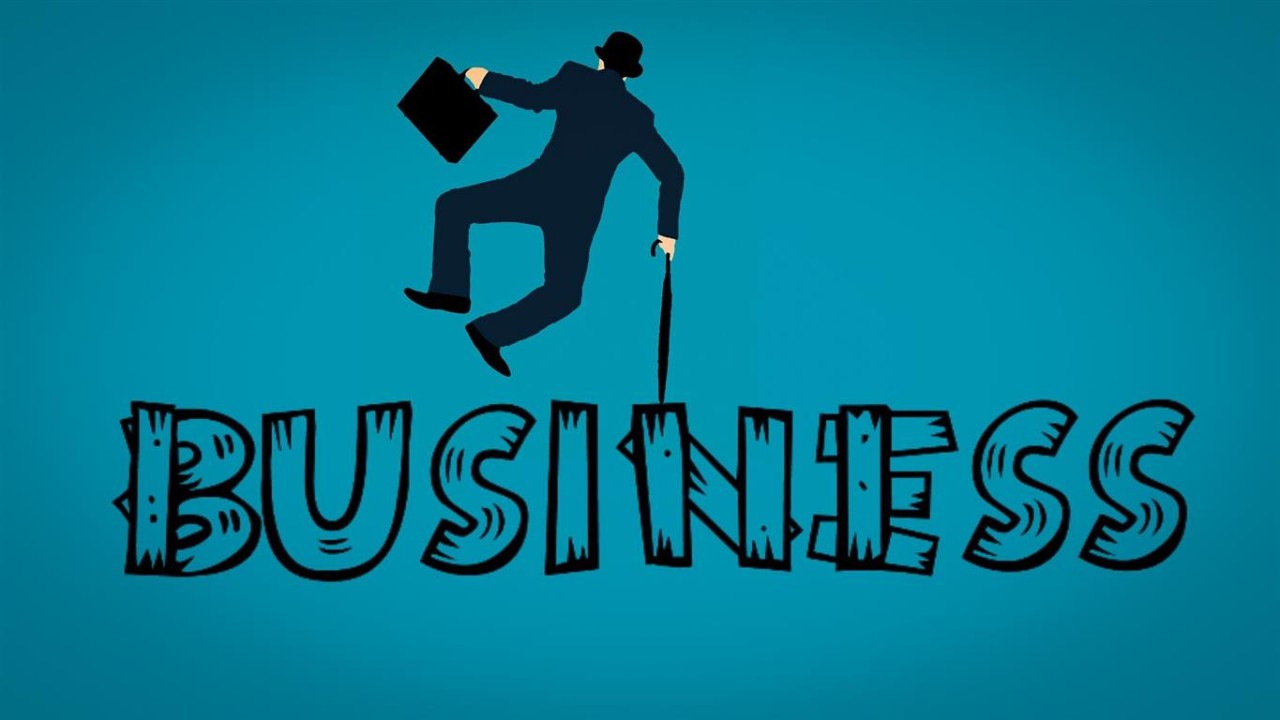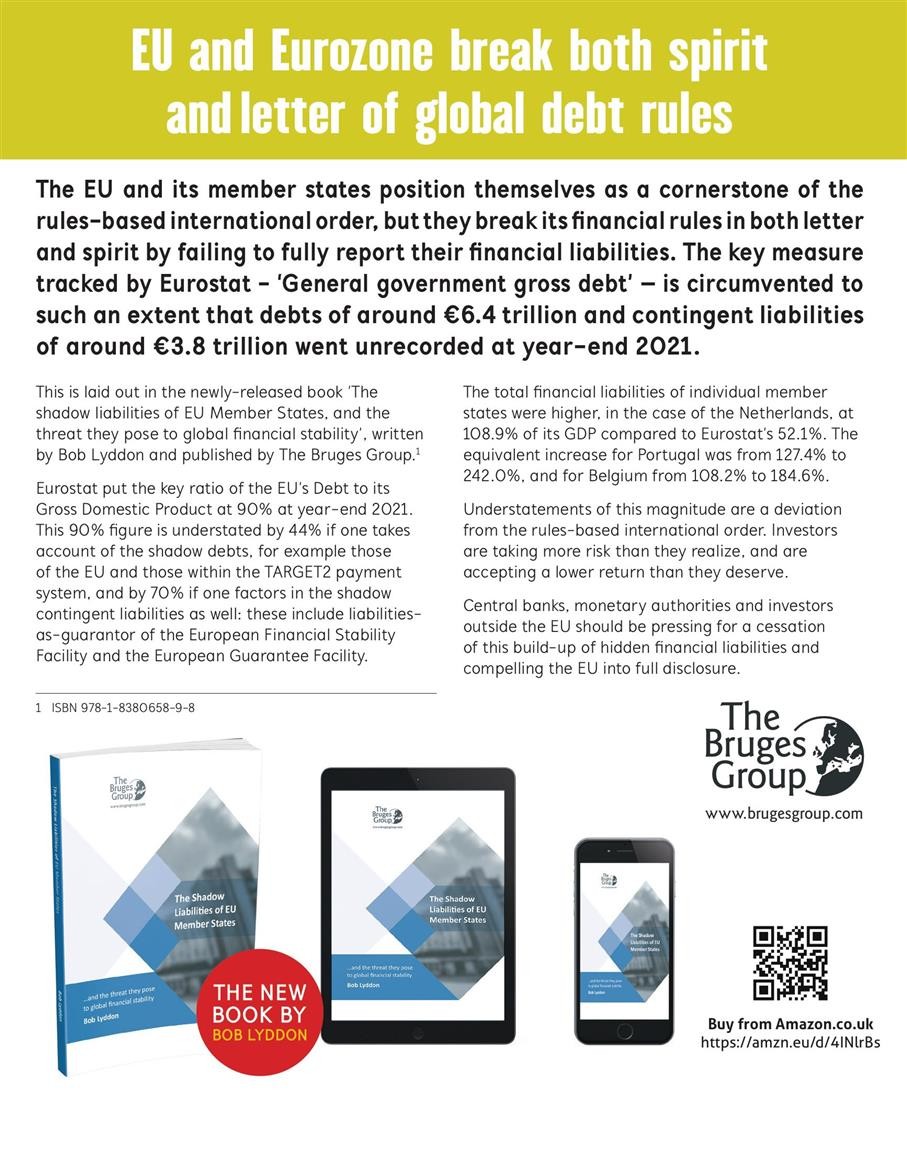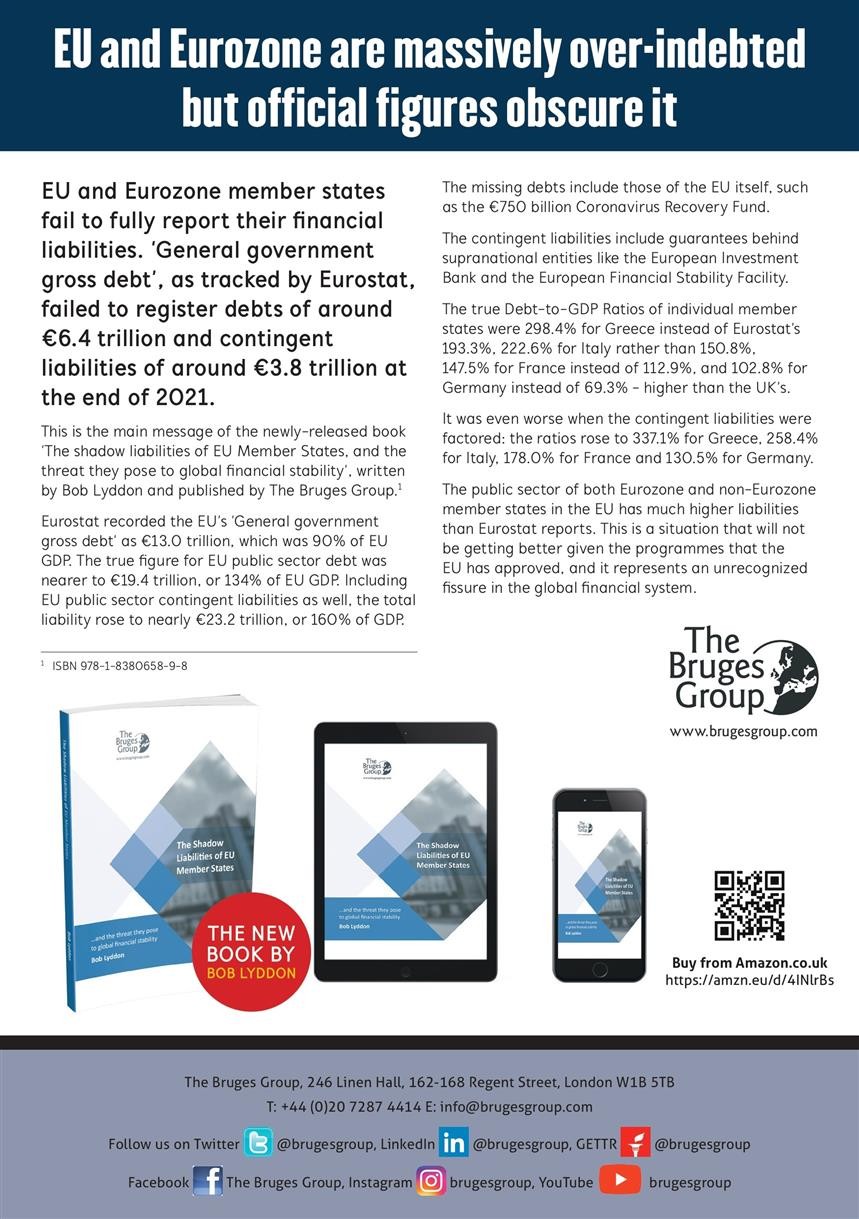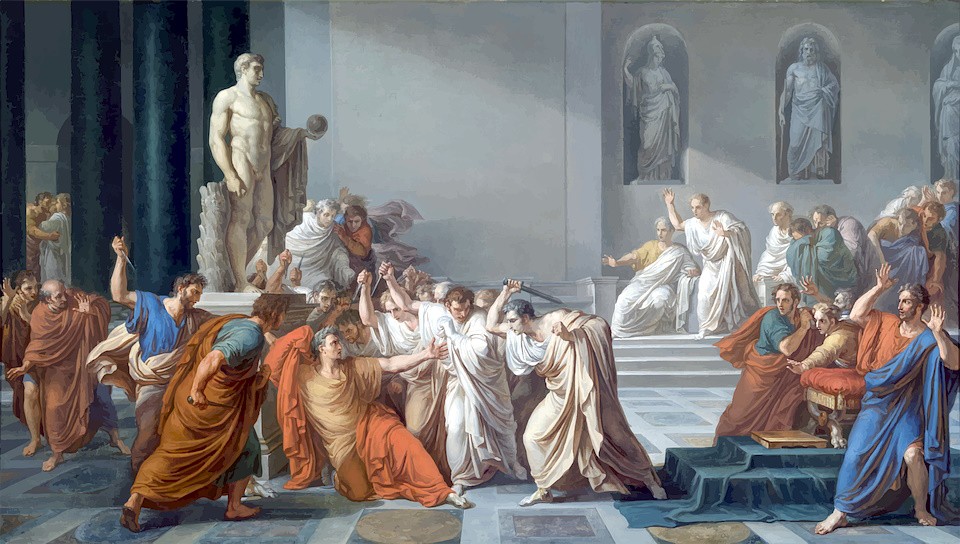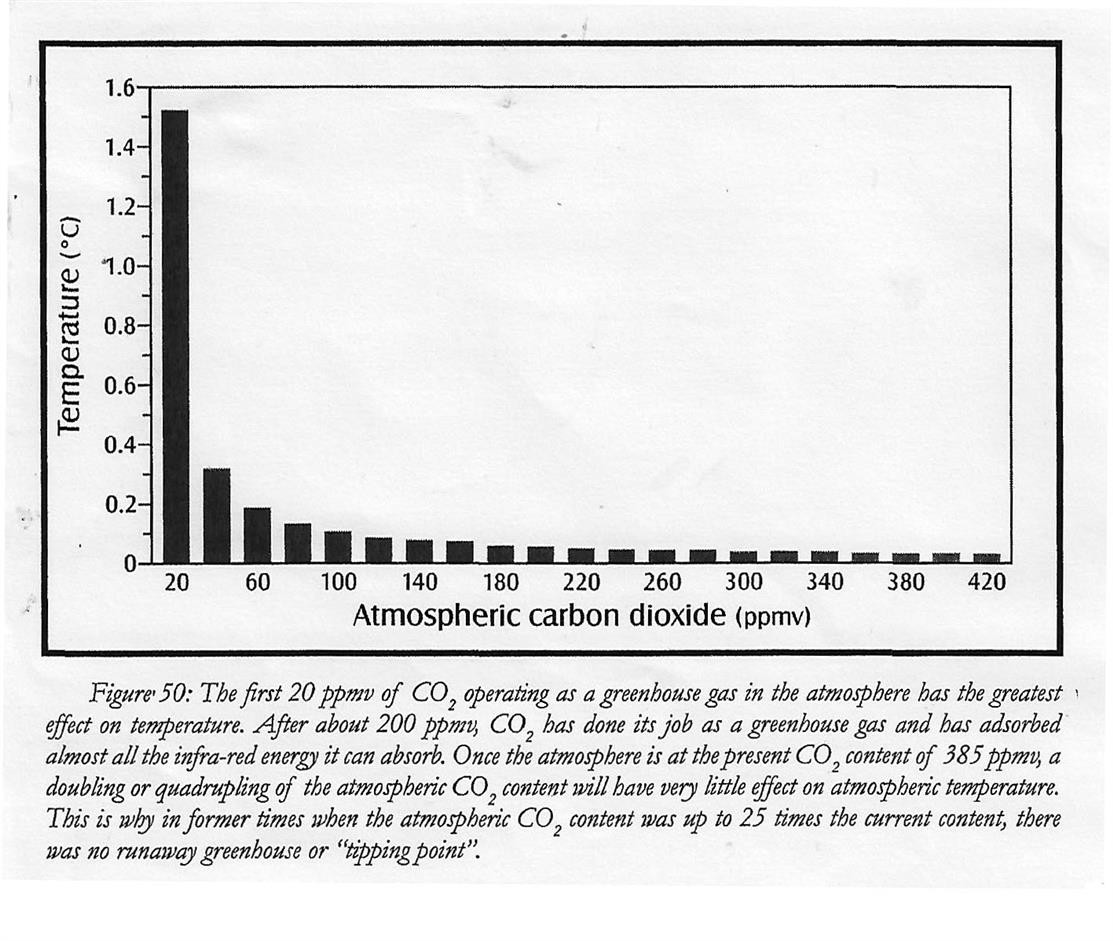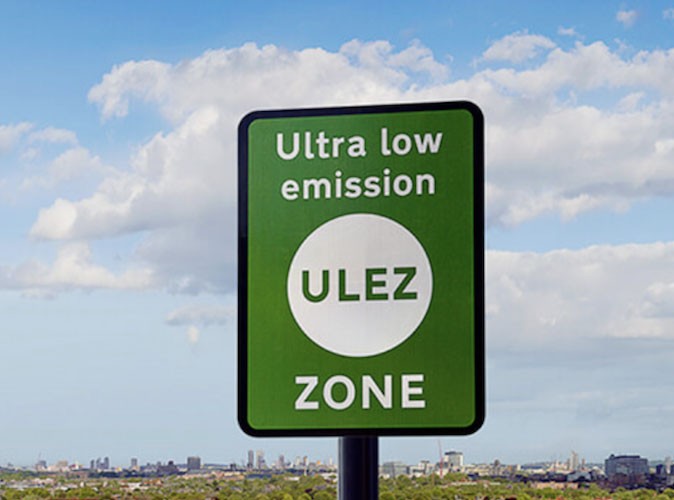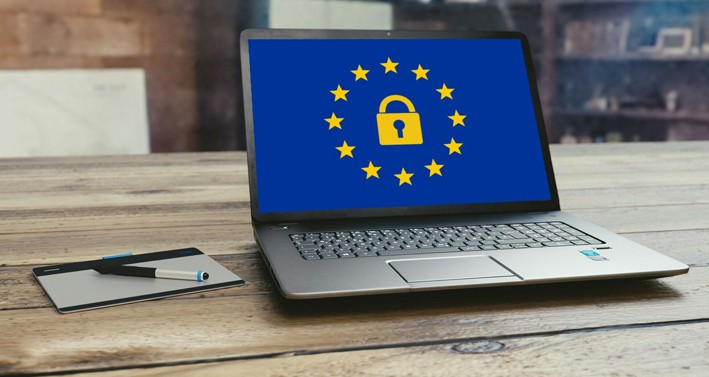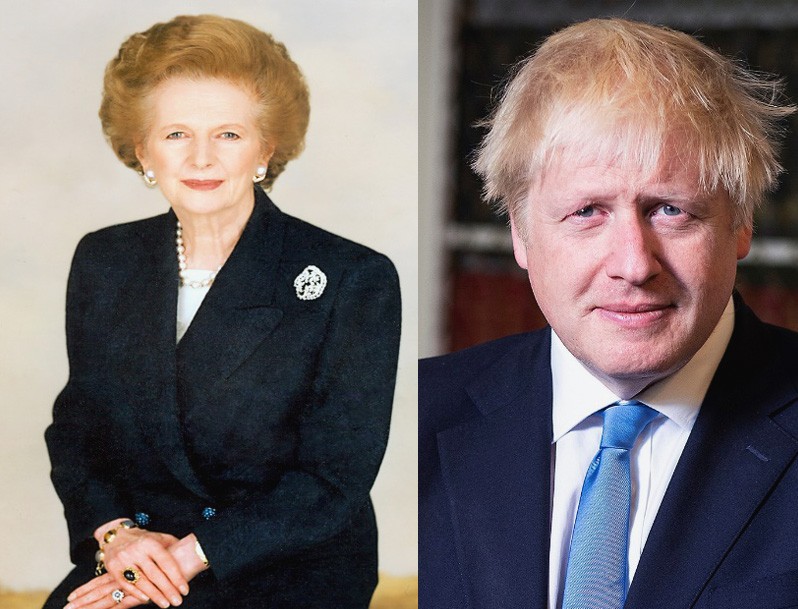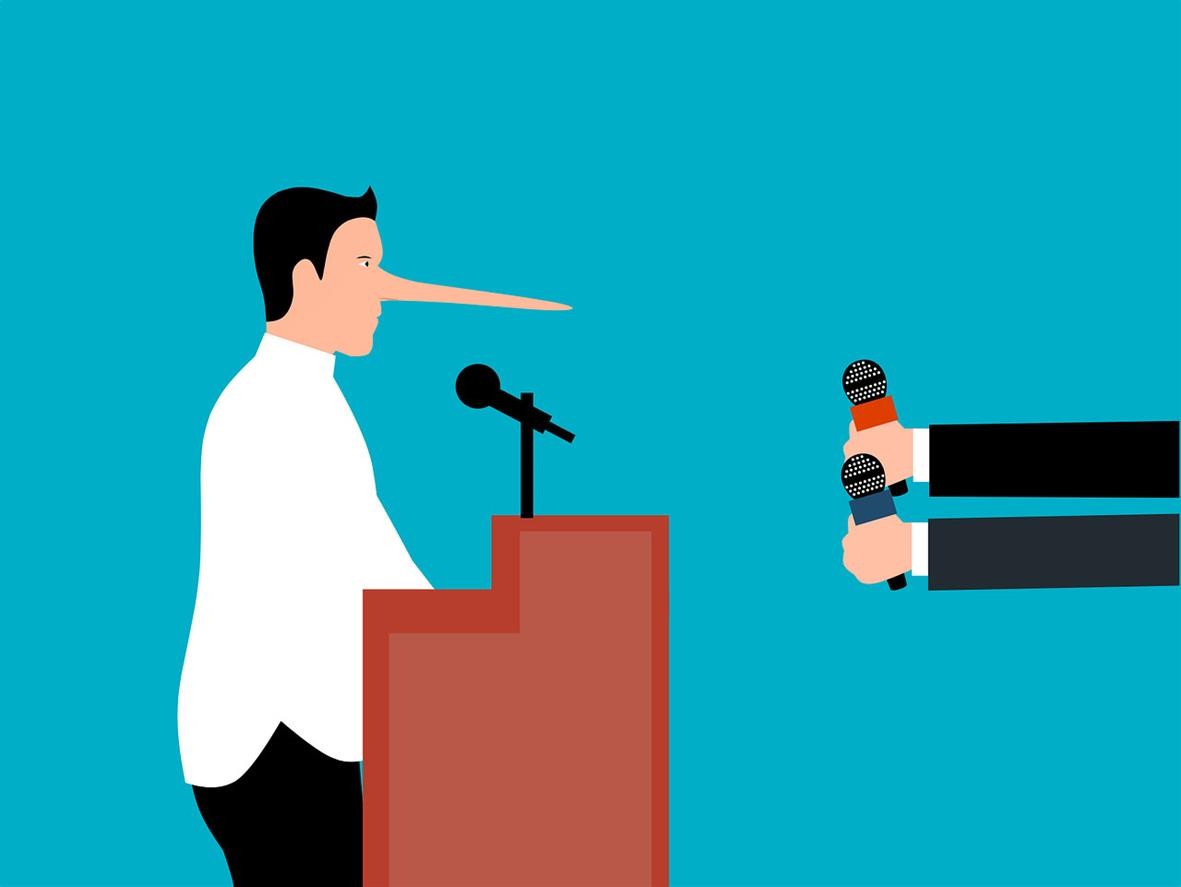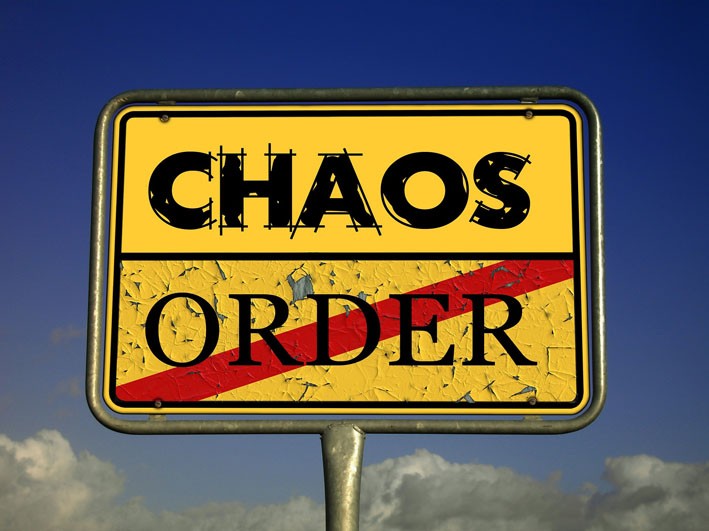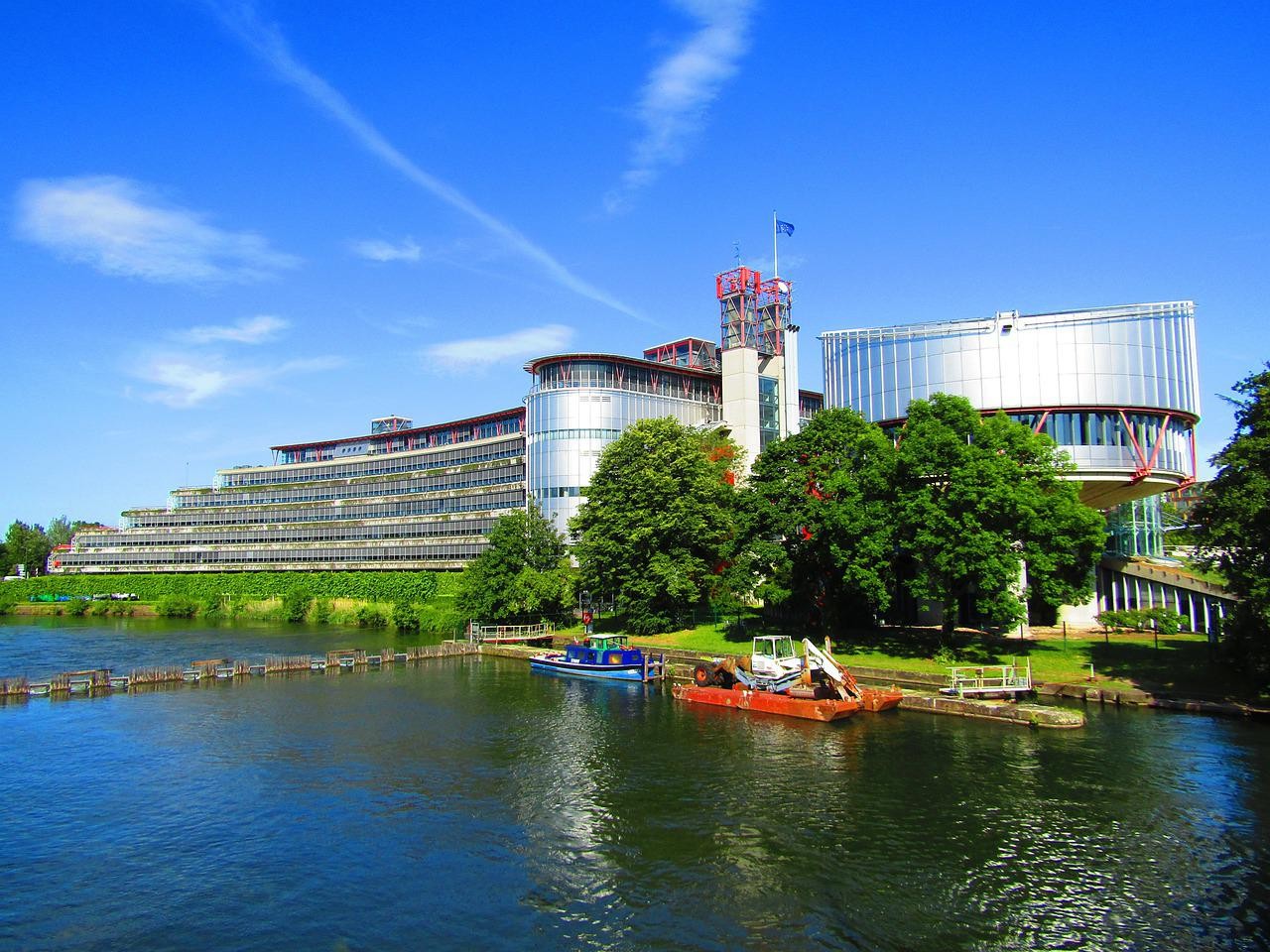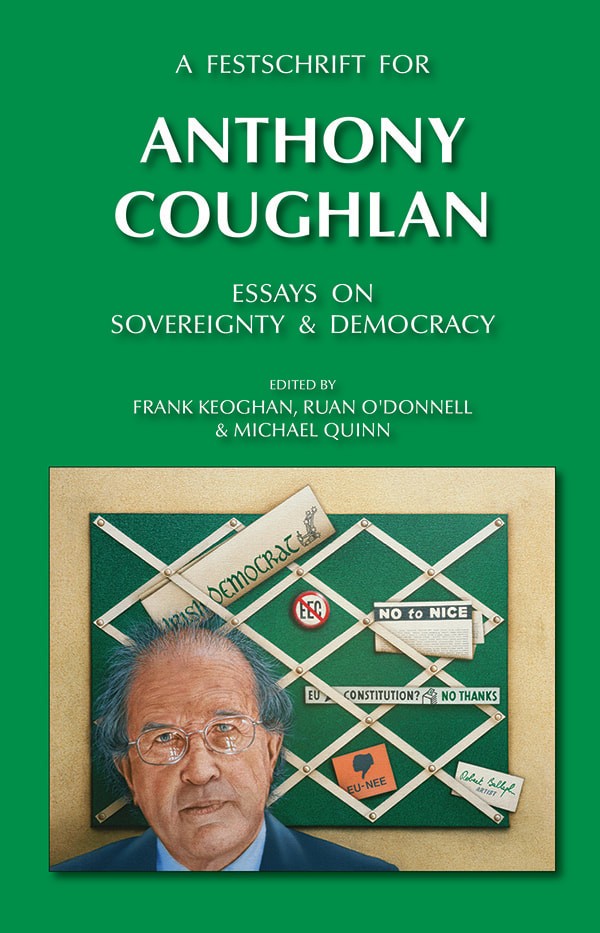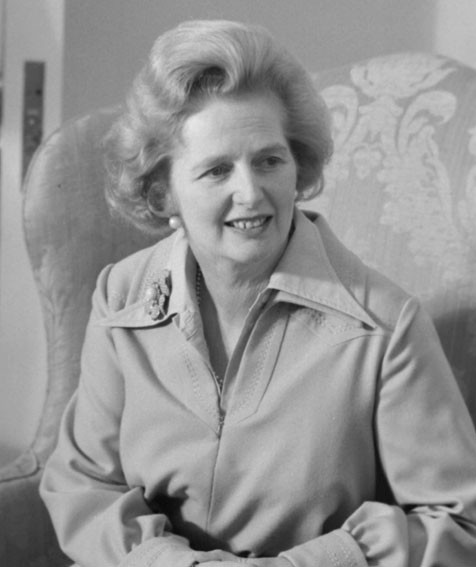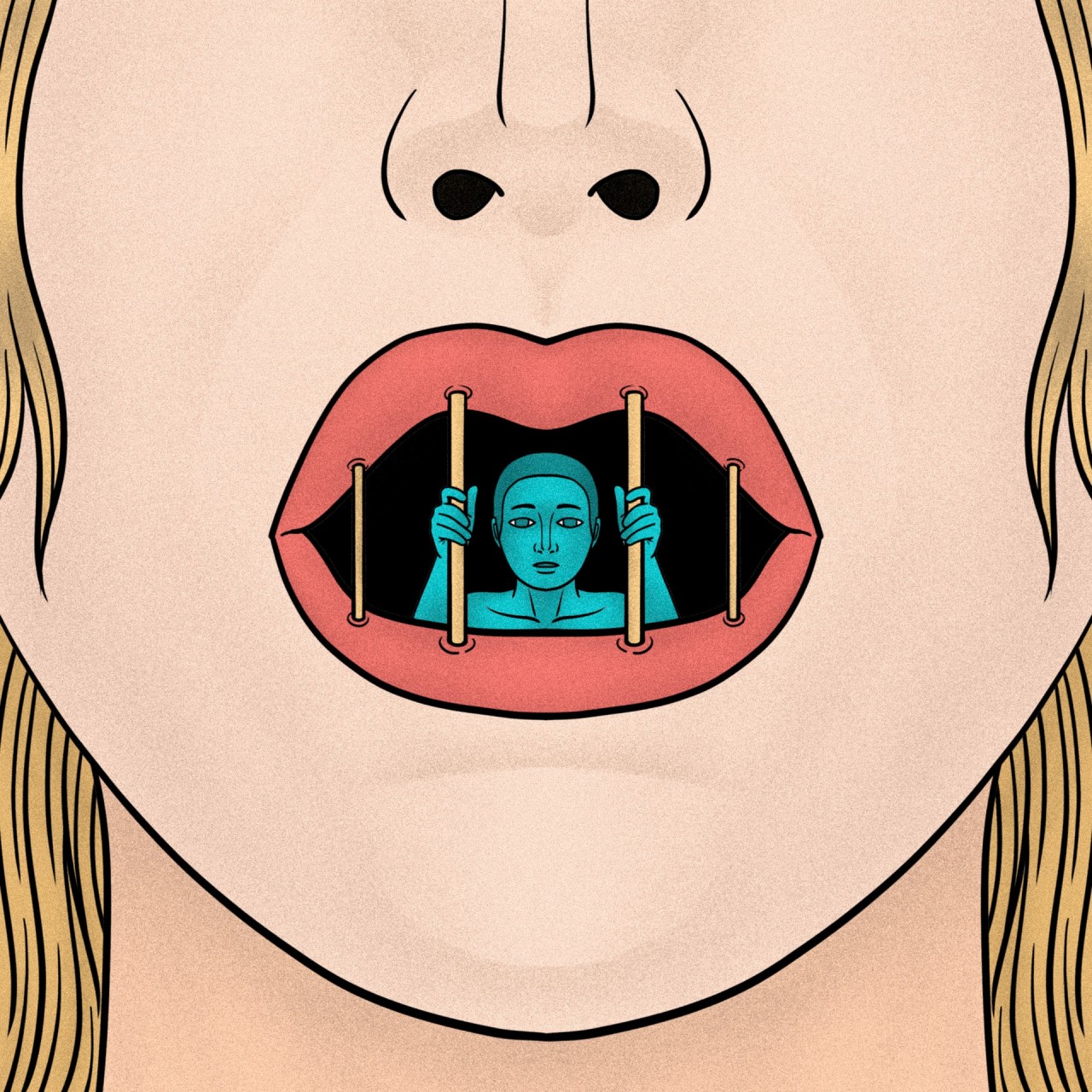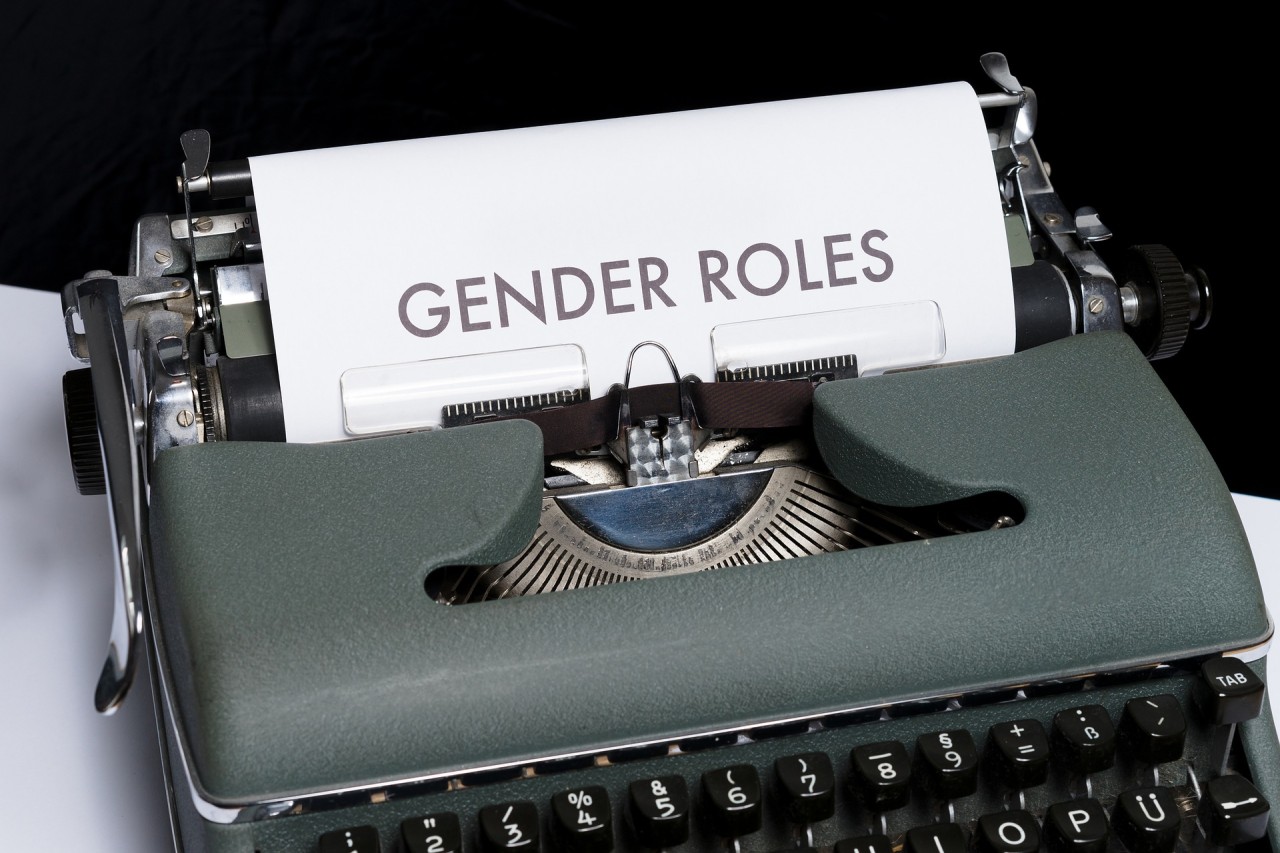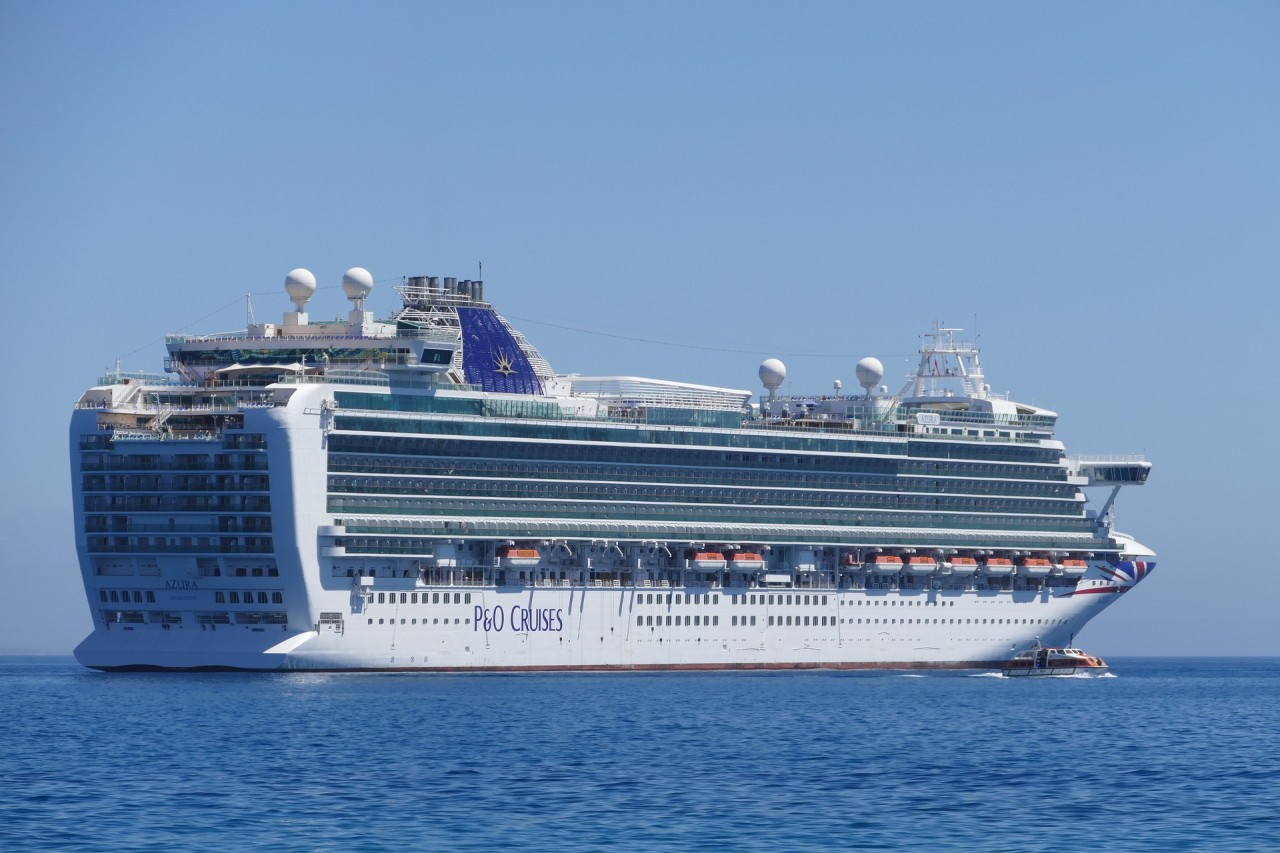Bruges Group Blog
We are now well into May, and it appears that the flood of illegal immigrants across the channel has not abated – if anything, as the weather improves it is likely to increase. The opportunity to control our borders, and to decide who enters the UK and for how long, was a key strand of Brexit, yet nearly seven years after the momentous vote, nothin...
The programmes of the European Central Bank (ECB) are extensive, and involve greater risks than the ECB can bear, it being very thinly capitalised. Even modest losses on its programmes would require it to be recapitalised by its Eurozone shareholders – the national central banks (NCBs) of the Eurozone member states. This is laid out in the newly-re...
The requirement for ID in Thursday's local elections has caused upset - Richard Murphy calls it 'a reversal of the right to vote.' At least he (correctly) thinks it's important. So does the EU, which is why it is post-democratic by design: its Parliament is nothing more than a talking shop. Moreover, the individual's ballot is swamped by sheer numb...
Three years ago today (2nd May) my MP wanted to demonstrate her responsivity to her constituents, which makes a welcome difference from the types that have allegedly represented me in the past. Unfortunately, we have locally an equivalent to Theodore Roosevelt's 'hyphenated Americans': some people who wish to embroil us in foreign matters beca...
To summarise the whole Raab "bullying" scandal is best described from Conservative MP for Peterborough, Paul Bristow, deploring the saga as cynically making the UK as "not a serious country". Certainly Mr Bristow is pristine clear about this, the mockery that the accusation of "bullying" affecting the civil service makes our nation a joke.From...
We're still cutting the Lilliputian threads, but if we can prevent Remainer sabotage we shall be able to say that we're fully out of the EU. But then, so is North Korea. Rather than define our destiny negatively as against the puppet-empire in Europe, what positive vision should we have of Britain and our future? We talk of ourselves as a democracy...
As we approach the Coronation we can expect much malign and ill-informed comment from people who do not understand our political system. One reason for their ignorance will be the deplatforming of speakers who could put them right, such as the redoubtable David Starkey, shunned by the woke for their misrepresentation of an impatient and infelicitou...
Net Zero is proving to be a good cover story for the European Investment Bank Group to create huge financial liabilities for the EU taxpayer. The amount looks set to exceed €1.2 trillion by the end of the current EU budget period in 2027. This is laid out in the newly-released book 'The shadow liabilities of EU Member States, and the threat they po...
Adam Tolley's report on the behaviour of Dominic Raab is flawed. The accusations were plainly coordinated between departments and were 'afterthought' accusations that would have been dismissed by an employment tribunal. Of the accusers "Only some of those individuals had any direct experience of the DPM (Deputy Prime Minister - Raab); some had neve...
The European Stability Mechanism is the main bailout mechanism behind the Euro. Croatia recently joined it upon adopting the Euro. The ESM uses two accounting tricks to make it appear larger and more robust than it actually is, disguising that it lacks the firepower to deal with a major incident. This is laid out in the newly-released book 'The sha...
The structures of the EU and Eurozone have allowed the creation of a series of supranational entities that have taken on debts whilst having little financial strength of their own: their creditworthiness depends on guarantees or capital calls from member states, without the extent of the member states' liabilities being transparent and being added ...
Public credit rating agencies discriminate against the UK and in favour of EU/Eurozone member states
Public credit rating agencies have not been even-handed in their treatment of the UK compared to EU member states, given the large shadow debts and contingent liabilities that weigh on the latter. This is explained in the newly-released book 'The shadow liabilities of EU Member States, and the threat they pose to global financial stability', writte...
The public credit ratings of EU/Eurozone member states are inflated, because the credit rating agencies have not factored in the significant shadow debts and other financial liabilities bearing down on the respective member state's debt service capacity. Total financial liabilities are much higher than these agencies appear to recognise. This is th...
Full yet? You wont see this on the BBC news but the last three quarters have seen the biggest improvement in the UK trade balance ever in history … EV-ER. This is precisely, exactly what the Remainiacs swore would NOT happen if we became an independent democracy again. The full dataset is here if you want to satisfy yourself I'm not maki...
Global debt markets appear comfortable to absorb all of the bonds issued by the European Union for its €750 billion Coronavirus Recovery Fund on the basis that 'it all tracks back onto Germany'. This is true: the guarantee structure behind the EU's debts makes each member state liable for the entirety of them. The same debt markets do not seem to h...
The EU and its member states position themselves as a cornerstone of the rules-based international order, but they break its financial rules in both letter and spirit by failing to fully report their financial liabilities. The key measure tracked by Eurostat - 'General government gross debt' – is circumvented to such an extent that, based on year-e...
Cecil Rhodes once said: "to be born English is to win first prize in the lottery of life". As a baby boomer growing up and going to school in the 1950's and early sixties, being taught to be proud of my country, our history, empire and its development into the Commonwealth, I always felt extremely privileged to be born British and fully agreed with...
EU and Eurozone member states fail to fully report their financial liabilities. The key measure tracked by Eurostat - 'General government gross debt' – is circumvented to such an extent that, based on year-end 2021 figures, debts of around €6.4 trillion failed to be registered, and contingent liabilities of around €3.8 trillion. This discrepancy is...
EU and Eurozone member states fail to fully report their financial liabilities. The key measure tracked by Eurostat - 'General government gross debt' – is circumvented to such an extent that, based on year-end 2021 figures, debts of around €6.4 trillion failed to be registered, and contingent liabilities of around €3.8 trillion. This discrepa...
The delicate balance of the Good Friday Agreement should be protected By Derrick Berthelsen Reprinted by permission of the Critic Magazine There are many reasons to vote against the Windsor Framework changes to the Northern Ireland Protocol. Several excellent articles have been published outlining why — in this and other periodicals — but tod...
The repudiation of the sovereignty of the UK's people by a pro EU elite has always been a puzzle. It is a puzzle because not one of them was able to explain their reason. In the absence of a cogent argument, independence opponents resorted to 'Project Fear' during the referendum campaign on leaving the EU. Blood curdling threats were rolled out exp...
Politicians should have a vision. George H. W. Bush's perceived lack of one probably cost him a second term. Atlee's vision of a British Socialist Commonwealth condemned the UK to a painful exodus from the privation of WW2. Its legacy hampered our development. The Reagan - Thatcher vision was a time of hope, a vision of a renewal for the world demo...
Since its establishment in 1988, the IPCC's many scientists have been mandated by its founders (the UN Environment Programme and World Meteorological Organization) to "make policy relevant – as opposed to policy-prescriptive – assessments of the existing worldwide literature on the scientific, technical and socio-economic aspects of climate change....
With little discussion most of the world (the democratic west at least) is in a race to a net zero bottom. Scientific evidence is manipulated to 'prove' carbon damage. Normal climate variations that have existed since the world began are now labelled a 'Climate emergency'. Scientists who disagree are silenced by withdrawal of funding and or loss of...
Seventy five years ago George Orwell, in my view the greatest political thinker of the 20th Century, wrote the novel 1984. This was one of the most prescient books ever written, eclipsing most science fiction stories, in that it is so true to the age in which we now live, while, as a horror story it puts fantasies such as Dracula in the shade. Not ...
Whatever the choreography we have a clog dance not a ballet. Sunak's 'deal' is yet another fudge. Involving the King in politics and the manipulation, copied from the EU, demonstrate a cynical disregard for probity. The Northern Ireland Protocol is a travesty. No Independent nation can agree to be ruled by a political court (The ECJ) whose sole rem...
The values that have nurtured our law and democracy are increasingly under attack. Keir Starmer endorsing the move to enable people to declare that they are not the sex they were when born. He claims women can have a penis. He also, unsurprisingly was unable to define a 'Woman'. Supporting this idiocy, media reports of a rapist who claims he ...
For many years I have pondered the cunning, deceitfulness and often seemingly sinister actions of our elected Members of Parliament and Governments, I have tried to understand why they were so happy to surrender our country to rule from the European Union and why they are all so besotted with 'Net Zero' and spout a lot of nonsense about globa...
Since the referendum governments have squandered opportunity. We should be in a strong position, but a combination of Pro EU Tories, the Blob and the Civil Service has put democracy at risk. The daily attacks on Brexit citing idiotic opinion polls, demonstrate a determination by the opponents of democracy to take us back into the EU whatever the co...
The Bruges Group is pleased to republish this article by Barnabas Reynolds Brussels' rules are prescriptive and controlling, and are holding back British growth The Prime Minister must restore Britain's sovereignty over our laws The Government is seeking the power to remove some of the vast swathes of EU-inherited law by the end of 2023 in it...
The Prime Minister advocates that the teaching of Maths should be a priority, although one suspects that he really means numeracy, as the ability to add up a few figures is more useful for the average person that knowing all about the calculus of the hyperbola. However the level of debate concerning economic matters in this country makes clear that...
In the Middle Ages, before the widespread use of gunpowder, the moat of a castle was an effective means of defence. Although the age of castles as strongholds is long gone we in this country have one trusty moat which has protected us for centuries, and I have often remarked, when contemplating history, and indeed modern threats, "Thank God for the...
This paper was written in November 2022 by: Stuart Agnew. MRAC (Agricultural science) Roger Helmer. M A Cantab (Mathematics) It is published by the Bruges Group as an Important contribution to a debate we should be having. OVERVIEW Within the last 20 years a belief has become established that the planet is imminently destined for catastrophic clima...
Three quarters of a century ago, when Britain was fighting for her life and the freedom of Europe, no important body of opinion would have questioned the value of patriotism or the importance of preserving and cherishing our nationhood as a focus of resistance to Nazi totalitarianism. Pride in our heritage, our sense of connection with the past and...
For over a century the UK has struggled with political realism and to an extent, its identity. In 1918 the Labour Parties pamphlet 'Labour and the New Social Order' set out an essentially communist agenda. Beatrice and Sidney Webb's 1920 book ' Constitution For The Socialist Commonwealth Of Great Britain' fleshed it out. Many were taken in by talk ...
The short-lived Truss government came to power with a mandate to change Britain. She fought her campaign clearly stating her policy. She was lawfully elected according to the rules. Her policy was designed to produce growth. Cutting taxes was a part of the program. The respected US Tax Foundation in its 2020 report on UK tax wrote: "All things bein...
A competent Conservative Government would have rectified the anomaly of taxable income between £100,000 and £125,140 being subject to an effective tax rate of 60%. It is clearly anomalous for the effective tax rate to rise from 40% to 60% on income in this band and then fall to 40% on income between £125,141 and £150,000 before rising to 45% on inc...
The UK faces problems, problems that to a great degree are the fault of the political and financial establishment. There is no point in blaming every ill on Covid and Ukraine indeed it is only to the latter crisis that the establishment response has been sure footed. Otherwise, the failures are legion. Brexit has not been fully implemente...
I was raised to consider the police to be the friends of ordinary people, there to protect us from criminals and thugs. As a youngster I found this to be true and later, as an adult I met many policemen, when playing in teams against them, at various sports, such as golf, tennis, squash, football etc. Now retired I know a number of retired officers...
One of the less-endearing qualities of the Conservative and Unionist Party (and I speak as a life-long Conservative voter), is the lemming-like compulsion to immediate change leader if things appear not to be going their way. 'Throwing out the baby with the bathwater' appears to be the inevitable jerk reaction by some MPs, regardless of the value o...
The great war time leader, Winston Churchill, once said: "democracy is the worst form of government – except for all the others that have been tried". he was seldom wrong in his political thinking, a sound working democracy ensures tyrants and despots do not have the chance to come to power. Sadly, through history and events today, there have been ...
Democracy is in serious trouble. Before Trump was sworn in, many Democrats took to the streets to protest. 'He is not my president' was their battle cry. The American people were presented with a choice between Hilary Clinton and Donald Trump. They had to elect one of them and the majority chose Trump. For democracy to function there must be loser ...
The final lines of G K Chesterton’s poem “The People of England” are “We are the people of England; and we have not spoken yet. Smile at us, pay us, pass us. But do not quite forget.”. The period of mourning, and the magnificent funeral, of our beloved late Queen have shown that these words are not empty, but reveal the truth. Despite years of hectoring by the intellectual Left, whose domination of the media, particularly the BBC, has given the impression that their view of the world is the only acceptable one, and that to be what they describe as socially progressive represents the only virtue, the ordinary citizens of this country have shown that they have not changed, and that, when the chips are down, they are as patriotic as those who endured, and won, two World Wars in order that freedom and democracy might survive.
The true British spirit of those days, as portrayed in the great war films of the 1950s, such as “The Dambusters”, “Reach for the Sky”, and “The Cruel Sea” , shows a people with grit, and determination, using both the shield of freedom, and the sword of righteousness, to defeat evil regimes seeking to destroy democratic civilisation. They are far removed from the vociferous, carping, and ignorant, left wing activists, who claim to seek a socialist Utopia, but in fact would plunge this country in a dystopia as envisaged by Orwell in 1984, where humour and laughter do not exist, only a grim pursuit of power for themselves. What a contrast to the smiling face of Queen Elizabeth!
In the last words that Holmes ever addresses to Watson he says “Good old Watson! You are the one fixed point in a changing world”, and this is something that could also be said about our much mourned Queen Elizabeth II. She was never afraid of innovation, and was instrumental in transforming the monarchy to adjust to the modern world, yet in those matters which abide, and are truly important, she was steadfast. As the last significant link to the great Second World War generation she represented duty, courage, faithfulness, humour, and a stoic endurance of the worst, in order that the best should ultimately triumph. To use the words of Shakespeare’s Julius Caesar, in the eponymous play, she was “as constant as the Northern Star”, and contrary to the speech of Antony from the same source “The evil that men do lives after them; the good is oft interred with their bones.”, the good that she did will survive, as her son takes on the mantle she has now laid aside.
Thanks to our careers in the administrative sector of the Church my wife and I had the honour of meeting Her Majesty at the time of the Silver Jubilee, and later attending a palace garden party, and we can attest to the fact that she was expert at putting people at their ease, and showing an interest in their lives. She was a truly great lady, a devout Christian, and an example to all in how to behave.
Although we shall never see her like again the new King is cut from the same cloth, and offers a certain hope that her legacy will continue. The monarch, by standing about the political fray, provides a calm centre to our national life, preventing by their very presence the possibility of any sort of demagogue becoming a dictator, or some democratic, but divisive figure, becoming President.
Constitutional monarchy has been shown to be the best system yet devised to protect the rights of all, providing a template for governance which billions around the word envy. Who could believe that a President Edward Heath, Tony Blair, or even Boris Johnson, could unite the nation, and command the love and respect that the monarch enjoys?
In the face of the blandishments of the vociferous republicans we should indeed be foolish to throw out an institution which has served us so well, although there is one danger which could yet destroy it. Should, God Forbid, through a terrorist attack, or a simple plane accident, anything happen to the Prince of Wales and his family, we should be faced with the prospect of the Duke of Woke becoming King. Harry has shown himself to be courageous, and supportive of injured soldiers, but he is unfortunately also, just like Edward VIII, not very intelligent. He has fallen under the influence of one who is herself the product of the shallow, celebrity culture of Hollywood, and who seems to be obsessed with the idea that she is somehow oppressed, even when living in a vast mansion. His accession would be unacceptable to vast numbers of people, who are sick of being lectured on their supposed shortcomings by the woke. In addition, although never convicted of anything, the Duke of York, next in line if the Sussexes were excluded, would also be rejected by too many for him to inherit the throne. If it were constitutionally possible these two parts of the royal family should be removed from the line of succession, in order to safeguard the future of the monarchy
Two more truths can be derived from the events of this month.
The first is that the Armed Forces, despite the efforts of too many administration to downgrade their importance, remain the same disciplined organisations they always were, responding triumphantly to the demands put upon them . The bearer party of Grenadier Guards were superb, and all deserve medals, while the faultless performance of the troops on the day was breathtaking to behold.
The second is that, in an age when useless managers infest so many of our public, and indeed, private bodies, the skills of the Duke of Norfolk, shown in his organisation of everything, put such parasites to shame.
The Queen has gone. God save the King.
An energy crisis hit world economies and after almost three years the pain exploded in most countries. The exception was the USA. Acting pro-actively President Reagan slashed regulation to free the economy. He fired over 11,000 striking air traffic controllers. Breaking the strike. An action Paul Volcker saw as a 'watershed' moment in the battle ag...
Jeremy Nieboer wrote the excellent 'Climate: all is well, all will be well', published by the Bruges Group in 2021. His new book is another thought-provoking contribution to the debate about climate change. The author, a retired lawyer, forensically examines the scientific evidence about CO2. He shows that CO2 is essential to all life on Earth. Car...
The appointment of Chris-Heaton Harris as the Secretary of State for Northern Ireland was greeted warmly by unionists, ever hopeful that at long last we would have a Secretary of State who cared as much about protecting the rights of unionists as those of nationalists. Moreover, there was a great hope that this UK Government would break with the sy...
The best way to honor the queen would be to take up her form of leadership—as service. She was vivacious and regal up until her final passing. But the queen exuded something even more profound—a surety in the way she led. The entire world watched (an estimated 4.4 billion, making it the most viewed event in history) and wept over the recent l...
The Acts of Union is the present constitutional foundation of the United Kingdom. As the late Lord Trimble, the unionist architecture of the Belfast Agreement, said: The Acts of Union is the Union. The Northern Ireland Protocol "subjugates" (in the words of the Court of Appeal) Article VI of the Acts of Union, and therefore it follows that it subju...
"…in the big lie there is always a certain force of credibility; because the broad masses of a nation are always more easily corrupted in the deeper strata of their emotional nature than consciously or voluntarily; and thus in the primitive simplicity of their minds they more readily fall victims to the big lie than the small lie, since they themse...
In this important book, the author Jeremy Nieboer sets out the case for CO2 as a vital element of mankind's survival. It is also a powerful indictment of the UN and Global elite who have so woefully failed to protect the earths population. Shockingly the author explains that this failure is brought down upon us solely by unquestioned submission to ...
There is a disconnect between the media, politicians and the people of the UK. We are fed a daily diet of gloom. Hysterical millionaire 'experts' rant with messianic fervour. A plethora of experts, who helped cause the problem, seek to out do each other in their apoplectic zeal to blame others. It is as if they seek to reprise the late Jack Hawkins...
It is time to reset our expectation of democracy. We have drifted into a situation where people vote for politicians who, mostly, ignore their duty. That duty is to protect the nation and its people. To create an environment where, in security, hard work is rewarded and people can flourish peacefully under the law. Perversely, politicians have adap...
In a very revealing article many years ago called "Why I am Not a Conservative," a very famous libertarian let the cat out of the bag. He loudly denounced the argument for tradition and custom by calling for a form of anything goes liberalism and atheism. Some go even further, coming close to anarchy with their complete opposition to the state and ...
Democracy, liberty and the continuation of western civilisation is under threat. It is threatened by those we have elected to protect and nurture our society. A small number of self entitled politicians and bureaucrats take decisions without reference to their electorate. Sunak's decision to raise Corporation tax to 25% next year has everything to ...
We hear about a crisis in mental health which requires urgent solutions, but it may be that, rather than any physical cause, this is the result of the way in which the realities of our modern world are affecting peoples’ perceptions.
Those living in these islands for the past two millennia have had much to cause them concern. The dictatorship of the Roman Empire, the wars between the original British and the Saxons, then those between the latter and the Danes, followed by the Norman Conquest, the many wars with Spain, France and others, culminating in the battles with Germany, and then the Cold War. In addition we have endured plagues, and famines, while much of the nation lived in what we would now describe as poverty.
Today we have been faced with the Covid pandemic, the renewal of war on the European continent in Ukraine, demands that we wear sackcloth and ashes for the past sins of our ancestors, accept blame for supposed climate change, and fret over matters of sexual identity. If there is any truth in American police dramas, as shown on TV, psychiatrists seem to be inventing countless new phobias, and other mental conditions, although it often seems that these are produced by defence lawyers trying to excuse the guilty.
There are however two major differences between our times, and the past. Firstly for many centuries, however bad things were, the vast majority had a religious faith, which offered a hope, and for most, a certainty, that there was an order to their lives. presided over by a beneficent deity, who would ensure that in the end justice would prevail, and they would enter a blissful new life. Now, with so many believing in no such thing, people face an existence in a vast, unending, perhaps eternal universe, with only personal oblivion to which to look forward at the end.
However, such thoughts may usually be far from most people’s thoughts, but what is not is the fact that the unprecedented expansion in communications brought about by the technological revolution is bringing concerns before us that would not have disturbed our ancestors. I can remember when the first live satellite signal to Britain from the United States was broadcast via satellite on July 23, 1962, but now we think nothing of speaking live to friends in Australia from our own studies at home. Where once, if one had an opinion on some issue which one wished to share publicly it was necessary to write a letter to a newspaper, or hold a meeting, now everyone with access to the Internet can broadcast their views to their heart’s content via social media. The inevitable result is that people are worried more and more by things of which they would not have been aware in the past, and expected to take positions on matters that do not impinge on their daily lives, and on which nothing they do or say would have any effect.
Boris Johnson's fall is due to a combination of factors. The man who was London's Mayor for eight years seems to have forgotten the reason for that success. He chose able lieutenants to implement his policy. As Prime Minister he desperately needed them. Without them, everything from BREXIT to Tax Cuts stalled and it seemed increasingly that the gov...
The following analysis by Ben Habib is reprinted from: https://www.newsletter.co.uk/news/opinion/ben-habib-we-are-being-hoodwinked-again-by-the-northern-ireland-protocol-bill-3750685 Ben Habib is a Newspaper Columnist and former Brexit Party MEP I am having a profound sense of déjà vu. In 2019 I said the Prime Minister's oven ready deal was a...
Nicola Sturgeon, Scotlands first Minister, has been banging on, yet again, about holding another referendum on Scottish independence and is proposing to hold a plebiscite during October 2023. This is despite the fact she lost the so-called 'once in a lifetime' independence referendum in 2014. If the people of Scotland go mad and vote to break...
Sir William Cash MPRt Hon David Jones MPMartin Howe QCBarnabas Reynolds The constitutional and legal position of the United Kingdom in relation to the Protocol on Ireland and Northern Ireland (the "Protocol") is founded on Section 38 of the EU (Withdrawal Agreement) Act 2020 ("EUWAA 2020"). There are also pertinent issues relating to international ...
Thirty years ago, twenty-three Conservative Members of Parliament voted against the Maastricht Treaty. Our main concern was that it opened the door to the abolition of the Pound and its replacement with what became the euro. Some twenty-seven years later in two-thousand and nineteen, twenty-seven Conservative Members of Parliament voted against The...
Take back control, they said. The UK-Rwanda Migration and Economic Development Partnership was their means of doing so. In response to the 11th hour intervention from the European Court of Human Rights which led to the flight being cancelled, the Home Secretary Priti Patel said "We will not be deterred from doing the right thing and delivering...
Background Rather like its contents, the government's Energy Security Strategy has an overarching theme of "better late than never" and contains a number of positives around the development and implementation of measures to mitigate against reliance on imported energy, whilst maintaining the nirvana of Net Zero by 2050. There are some bold commitme...
British politicians and mainstream media have claimed that Russia is responsible for "turning off" our gas supplies, amid hysteria over Ukraine. That's not the case, the culprit is closer to home. In late 2021, the British government paused the development of the Jackdaw and Cambo oil and gas fields off Scotland as a result of its commitment to the...
Michael Neu is a Senior Lecturer in Philosophy, Politics and Ethics at the University of Brighton. He writes, "Defenders of just liberal violence … fail to see that any attempt analytically to separate their philosophical arguments from the politics of their time – the attempt, essentially, to engage in apolitical moral philosophy about matters of ...
Anthony Coughlan is known to most of us for his heroic work for the National Platform of Ireland, which campaigns for Ireland's independence from the EU. As Michael Quinn writes, "He has tirelessly campaigned against the centralising and unaccountable EU bureaucracy; articulating instead the alternative case for a Europe of independent and co-opera...
Claire Ainsley is Executive Director of the Joseph Rowntree Foundation. In this useful book she shows that voters generally have very sensible views about what Britain needs to flourish. She points out that "by Labour's third successive victory in 2005, working-class support for Labour had waned, and non-voting rates of working-class voters i...
The day of writing this article is the 16th May, which was the birthday of Bertram Edward Bennett (Bertie Bennett to all who knew him), who was my father. He was Born in the slums of Birmingham in 1915. As a young man and being a devoted socialist, he joined the Communist Party who promptly told him he should also join and infiltrate the Labour Par...
By Barnabas Reynolds. The Brexit Freedoms Bill aims to end the special legal status of EU law. It will also simplify the removal of retained EU law. Here Barnabas Reynolds explains the advantages for the City – and the economy. The UK has recently been confronted with a series of adverse economic shocks – from Covid and the war in Ukraine, to the c...
Being ambushed on his birthday to listen to a small group singing 'Happy Birthday' and sip a glass of wine may have been foolish of the PM. It does not count as crime in rational people's book. 10 Downing Street is a huge office. The Police issued 126 fixed-penalty notices naming only three recipients. The other 123 were presumably issued to specia...
In 1973 the French author and explorer, Jean Raspail, published his dystopian novel “The Camp of the Saints”, which portrayed the destruction of Western civilisation by Third World mass immigration to France and the West, much of it by sea. Its name comes from the bible’s book of revelation, which depicts the apocalypse. Unsurprisingly it was decried by many as being racist, and indeed it has been popular with parties and groups who espouse far right policies. However, it returned to the best seller list in France in 2011
It undoubtedly contains underlying assumptions about the differences between racial groups, which run contrary to contemporary beliefs. Those of us who espouse Christian values know that the young child in a Third World slum is as important, and worthy, as any rich denizen of a rich country, while the accident of birth should be no guide as to the life to which one aspires.
However there can be no doubt as to its relevance to the question which is becoming more and more central to the modern world, that concerning the mass movement of peoples across the globe, and in particular for us in the UK, confronting the continued, and growing problem of illegal immigration across the Channel. On one end of the argument would be a halt to all immigration, on the other a free for all, with no limits imposed, and where the line is drawn is of increasing importance.
In the modern world a full stop would be impracticable, as well as immoral, as those fleeing in fear of their lives must be given hope of a refuge. To open the door entirely would, apart from provoking a massive adverse reaction among the indigenous population, very quickly reduce the host country to chaos, and economic destruction. We have tried to compromise with limits applied, yet valid refugees being welcomed, in particular those from areas, such as Ukraine, where conflict is taking place.
When looking at the specifics it is clear that the vast majority of those coming across on small boats are young men, albeit accompanied bya much smaller number of women and children. In addition, interviews with those arriving reveal that a majority are coming from countries which are not being subject to violent conflicts. These facts make clear that the bulk of these migrants are in fact motivated by economic factors, and should therefore be taking their place with those who are taking the legal route to claiming asylum, not being allowed to jump to the head of the queue. It should also be noted that they will have been paying considerable sums to criminals, indicating that they are not destitute, while they are coming directly from France, a country not considered dangerous, and where they should be claiming asylum.
It is quite understandable that very many people from the third world would wish to live in the West, but we must also consider the fact that we lack the infrastructure ranging from GPs, housing and employment to absorb unlimited numbers. Those who constantly seek to block anything the government tries to do to stop the flow of illegal immigration refuse to answer the direct question as to how many immigrants they would consider too many, and instead resort abusing those attempting to find a workable compromise as racists. It is doubtful that the lawyers, and metropolitan liberals supporting open door policies would themselves find their own jobs and way of life under threat, as the burden would fall upon the working class in already deprived areas.
Those left liberals, indulging in their usual virtue signalling at no immediate cost to themselves, should reflect that, if nothing is done, there will inevitably be a reaction which could affect far more than immigration policy.
nologThe COVID-19 pandemic had an unprecedented impact on companies across the world. In the two years since initial lockdown, far too many businesses continue to struggle to make a comeback. The Prime Minister of England has officially urged people to go back to their offices and normal work environments. His goal is to get everyone back to living...
Some people who start a business dream of it becoming an enterprise that is passed down through generations. While this is true for some companies and families, it can also be a fraught ambition. Families can be dysfunctional, and when that dysfunction is transferred to the workplace, it can be catastrophic for the business. Furthermore, there is n...
If Elon Musk succeeds in ending the left liberal bias on Twitter, which he will find hard, perhaps he might turn his attention to ‘NextDoor’, the local internet, where the same morons are allowed to run riot. Although I never touch social media, as so many of its users have obviously forgotten to take their tablets, I have used ‘NextDoor’, as one can advertise goods for sale, or seek information on local tradesmen etc. However it does also open the door to postings on any subject, so the woke, and other idiots, frequently add comments on a number of social issues, but always from the left liberal point of view. Any of us who respond are then subjected to abuse, with no effort being made to answer anything we say, the comments being full of claims, and no substance.
Remainers accuse Leavers of xenophobia, to doubt man made climate change causes the extreme environmentalists to call us scientific illiterates at best, although more usually morons, any statement pointing out that the British Empire was not all bad, and that one should leave the past to the past, is greeted with accusations of racism, as does any questioning of allowing thousands of illegal immigrants to land on our beaches, while if one dares to question the left consensus on sexual matters, particularly ‘trans’ issues this provokes completely over the top abuse.
I recently encountered this latter crowd when I dared to mention ‘so called’ trans men, pointing out that one female inmate of a prison had been raped by one such, as had a female occupant of a hospital ward. This generated hysteria, with me accused of being a rabid right wing transphobe, which some were unable to answer because they were so upset. Poor little snowflakes!
One particularly moronic woman posted the following “Your hate and fear is palpable. Your comments are abhorrent. You have absolutely no idea with regards to “ trans” personal issues and use media propaganda and stereotyping to spread hate, fear and paranoia. This is the same type demonising of the Jewish race and paranoia and hate that was spread in 1930’s Germany, U.K. and many other countries due to Fascism. So that illustrates exactly what you are. A Facist through and through filled with hate. Or in other words a sad little man”. This directed at someone who hates Nazis, and fascists, and who has always supported Israel!
This same lunatic followed up with “You have no hate yet you hate trans. You say you want to protect the rights of free speech but free speech begins with tolerance. Tolerance of everyone in our society not just the people we decide should have free speech. Women fought for rights and so do trans fight for rights. A trans person doesn’t choose who they are - they simply are the way they are. Those who aren’t trans are lucky enough to know who they are but I don’t expect you to understand that or to understand the mental anguish or persecution that many trans endure and yet you choose to judge and persecute trans people more by what incidents you read depicted propaganda in the media. Yes Goebbels and Mosley would have been extremely proud of you. Your hate is evidenced by your hate comments. You are the bigot. I believe In tolerance and equality. I think a trans person has just as many rights as the next person as a human being first and foremost and should be treated as such. The difference is I know trans people and value them. I also know women and value them. Just as much as I know men and value them. Each one is a person and as such are all entitled to rights. You don’t see any of them as people. You just divide them into labels that’s the difference and one label disgusts you. As for trying to protect women- don’t make me laugh. That’s your justification you tell yourself for your hatred. Keep lying to yourself because I can assure you no one else believes you”. This latter comment was because I dared to defend J K Rowling, and said that I supported the hard won rights of women.
After all this I replied in some anger, although without abuse, yet I then found that the ‘moderators’ had removed me from the forum for a week, because I had breached their laws on politeness. These latter must either be more snowflakes, who cry if they hear anyone arguing, or else just products of our modern education system, who believe all the rubbish the liberal left spouts. I suspect the latter.
What is clear is that most of these imbeciles are not themselves ‘trans’, but are merely virtue signalling to prove how wonderful they are (they think!). I expect that the few who do come under the ‘trans’ heading would rather be left alone to get on with their lives, but they are just cannon fodder for the mainly white, middle class, university (if you can call them that these days) educated idiots.
These people cannot be stopped from ranting, but it would be of great help if the silent majority, who rightly regard them with contempt, would join me in hitting back. If enough were then censored by the ‘moderators’ it would make a good case for closing the whole cesspit down.
This week has been another shocking reminder how far adrift today's Conservative Party are from the principles enunciated and implemented by its greatest peacetime leader Margaret Thatcher. To me personally, this has been dramatically emphasised by the loss of Westminster City Council to the Labour Party. Some thirty years ago as the Finance Chairm...
Is there a need for a rethink of the 21st century direction of travel of globalisation, the concept of a global village, 4IR, communitarianism and supranationalism, as conceived at the end of the previous century? Vulnerabilities of scale The devastating impact of the pandemic on economics, trade, logistics and the global supply chain, plus the imp...
It is past time to re-evaluate key U.S. assumptions about Europe and the European Union. For far too long, America and Europe have had a very one-sided relationship. It is like a codependent marriage, in which one partner sacrifices his or her own needs for those of the spouse. That person's actions will completely revolve around the other pe...
Margaret Thatcher broke the mould of British politics. A grocer's daughter raised above the family shop. She benefited from free state education including university. She believed in equal opportunity. She believed in wealth distribution through hard work and getting rid of as much state intervention as possible. As Prime Minister she encouraged pr...
As the dreaded 2030 deadline for the cessation of the manufacture and sale of all conventional petrol and diesel cars approaches, I have to wonder if our Prime Minister and other Government Ministers really have a clue as to what they are doing and if they realise the calamitous confusion they have set in place for the average British person. As a ...
Boris Johnson is often dismissed as a know-nothing on economics, and Rishi Sunak prides himself on being rather good at it. In his generally excellent recent Mais lecture, the Chancellor set out his vision for the UK economy. He aims for freeing up markets, improving regulation, and cutting taxes to incentivise investment, training and R...
Toothless EU 2014 embargo on export of weapons to Russia finally enforced on 8 April 2022 Removal of loophole covered up by EU – not mentioned in latest sanctions press release In our previous report of 25 March on EU arms sales to Russia between 2014-2020 we revealed how a clause allowed weapons contracts to continue to be fulfilled if they ...
Boris has offered his heart-felt apology to the nation for inadvertently breaking lockdown rules, for which he has been fined, but that is not enough for his political enemies unsurprisingly. Wednesday's PMQs were marked by a tiresome repetition by Opposition MPs demanding the resignation of the Prime Minister, using up precious parliamentary time ...
Outputs from Spring Statement In advance of the promised reveal of the government's energy plan this week, let's start with the positives from Rishi Sunak's Spring Statement. 5 whole years of VAT free purchases on solar panels, ground and air source heat pumps. Not in Northern Ireland of course but they seem to matter less than ever to the Conserva...
The European Union and Davos-style globalism is saturating the globe on all continents. It pretends to make the world a better place. It does no such thing. The Tower of Babel was real. The structure, reaching far into the skies, was built in the land of Shinar, in ancient Babylon. It was constructed some years after the Deluge, or what is co...
United Kingdom rates of personal taxation are at their highest in over 70 years. They are set to increase further. Whether or not governments spend the money they raise wisely? That's another piece for another day but my overarching view is that individuals make better spending choices than "the state". This article examines the ways in which the T...
US states courted for deals on financial services after US tariffs on steel and aluminium lifted. A look at the improving UK trade with US and Canada While all eyes have been on the possibility of a large bilateral deal with the US, the two governments have been reaching across the pond to strike small deals that amount to great improvements ...
By Andrew Rosindell In 2019, we went to the polls with a simple choice, Boris Johnson or Jeremy Corbyn, a choice to either Get Brexit Done or a choice for more dither and delay, maybe even a second referendum. Thankfully, the people of the U.K. voted to Get Brexit Done and they did so with an overwhelming majority. Unfortunately, our fr...
RAF deploys fighter jets and Expeditionary Air Wing personnel to EU's Romania. Once again, Brexit Britain flies to the protection of the EU On Saturday the Ministry of Defence announced that British Typhoon jets and Royal Air Force personnel are deploying to Romania. They will operate as part of NATO's 'Air Policing mission' for the Black Sea...
Voters are looking at Rishi Sunak's chaotic mini-Budget and concluding: the party stands for nothing at all. Every so often, a member of the Question Time audience manages to capture the current mood. It happened when an elderly gentleman told a bickering Nigel Farage and Eddie Izzard to "shut up" during a programme filmed in the run up to th...
When Parliament fell to debating various versions of a Withdrawal Agreement between the UK and the EU some of us had no wish to enter binding arrangements with the EU that could continue to prevent us making sovereign decisions for ourselves through elections and Parliamentary votes. I along with 27 other Conservative MPs voted three times against ...
While others close their Russian doors, French tills in Russia keep ringing. French companies find reasons to do business in Russia while British companies pull out Economic sanctions from Western nations were meant to send a message to President Putin: Stop the war and withdraw from Ukraine. The French are ignoring world opinion. Many busine...
The last two words of David Lean’s magnificent film “The Bridge over the River Kwai” are spoken by the character Major Clipton, when he contemplates the chaos surrounding him, as he cries out “madness, madness”. I have the same reaction when I look at the insanity which is distorting our culture, as ‘woke’ imbeciles are allowed to run amok, forcing changes which no one but they, and their idiotic followers want.
We now see a man, Lia Thomas, who has ‘transited’ to a woman, becoming the first transgender woman to win an NCAA swimming title. Anyone whom dares to question whether such people should be allowed to compete in the women's division after transitioning, is subjected to abuse, and threats for doing so. One of our sporting heroines, Sharron Davies MBE, has revealed that she has been subjected to such threats over her views on transgender women competing in women's sport, when she stated that it was unfair for such women for to be competing against normal biological females. She wrote: "I’ve received several threats to myself and my work because I present evidence based facts on the unfairness of male inclusion in women’s sport. Which is biological sex based decriminalisation. I will not stop bringing these actual facts into the light or be bullied into silence. I’m used to it now. But I feel we are turning the corner and open debate to find science based solutions are not far away that will protect the integrity and rights of females in sport as well as offering up ways to be inclusive but not as the cost of another groups’ rights."
Thomas' victory came after a civil rights complaint was submitted against the University of Pennsylvania for permitting this person to compete on its swimming team, it being pointed out that Lia's ranking was 462nd when competing in the male ranks. One competitor, Reka Gyorgy, complained to the athletics association about its decision to let Lia race against "biological women". However Labour equalities minister MP Charlotte Nichols disgracefully congratulated Lia on the achievement, saying "As a former competitive swimmer myself, indeed, I know full well how much training is required for a title like this. Anyone trying to diminish Lia Thomas' achievement because of lazy transphobia should frankly pipe down. Huge congratulations to her." That this nonsense should emanate from someone tasked with achieving equality for women is unsurprising, as Labour spokesmen and women now seem unable to distinguish between the sexes, something most normal people have no problem doing. The giants of the Labour past must be spinning in their graves.
Another example of this lunacy is the situation which has arisen at the Putney Tennis Club where the membership form has classed the option for 'female' as 'no longer valid'. The club stated that this was glitch, but, as one of its members says, “someone had to type in “Female (no longer valid)” , while another said that they suspected that the club had been taken over by ‘woke’ loonies, and this confirmed it.
Nottingham university continues to prove that it no longer deserves the name “University”, as it cancelling the offer of an honorary degree to Dr Tony Sewell, because his report on race in the UK failed to reinforce the former’s prejudices against white people. A statement was issued saying that "The university has strict criteria governing the award of honorary degrees, because these are conferred at our public graduation ceremonies. The criteria were revised a number of years ago to preclude us from awarding them to figures who become the subject of political controversy, so that a day of celebration for our graduates does not attract such controversy.” This from an establishment that has no problem cosying up to the fascists of Communist China.
A similar example of our so called universities being in the hands of the woke is of course Jesus College, Cambridge, again an institution willing to make excuses for China, but determined to remove the plaque in their chapel dedicated to the philanthropist Tobias Rustat because of false claims about his connections to slavery. For once right prevailed, and the decision of he Consistory Court of the Diocese of Ely was that the plaque should remain, but of course the monomaniacs of woke are determined not to leave it at that, being prepared to spend even more on continuing to pursue this false claim. In a similar refusal to accept outcomes the idiots at Oriel College, Oxford, with their “Rhodes Must Fall” campaign, refuse to accept that they have lost.
On a different front the Mayor of Woke, Sadiq Khan, has warned commuters that “staring” can be a form of sexual harassment and has launched a series of Transport for London posters that feature the mayor and British Transport Police’s emblems. So now we have the situation where a chap might be sitting there, absentmindedly thinking about his dinner, and finding himself suddenly accused by some neurotic female opposite of staring. Of course this sort of vague offence relies on the usual woke principle of guilty unless proved innocent, and can only provoke conflict where there was absolutely no offence committed.
When attending a recent football match I looked around at the crowd, and it occurred to me that probably almost no one there cared one iota about woke, and most would not even know what it was. This whole social movement is the product of largely white, middle class, university educated, metropolitan liberals, and is in fact an attack on working class culture by a bunch of elitists, who, in the past, would have been dismissed with contempt as twerps. The true blame for its spread rests with the organisations, and businesses, who choose to take it seriously, and allow their HR departments to persecute decent people in its name. Ordinary, well meaning citizens should treat the whole thing as the madness it is, and, where possible, boycott any body which is revealed as having adopted it.
Download PDF File Here Mr Sunak's Spring Statement was far less impressive than his rhetoric has made it appear. Once again a senior member of this administration reaches a Gold Standard in rhetoric, but at best a Bronze one in achievement. The claim does not stand up to examination that these were the largest reductions in personal taxation for th...
The European Commission is the executive branch within the broader European Union or EU. It apparently intends to introduce the continent's own digital euro bill sometime during 2023. This would coincide with experimentation done by the European Central Bank with a retail version of central bank digital currency across the union. Movement Among Mix...
The current cost of living crisis and stagnating growth highlight the importance of a re-examination of our approach to tax, trade and business, writes John Longworth. During the pandemic, conspiracy theorists loved to talk about the "great reset" that would be orchestrated by the Davos-loving global elites. If the events of the past two weeks is a...
It is constantly claimed that the purpose of the Irish protocol is to prevent a hard border on the island of Ireland, but that is a lie. The real purpose is to disrupt the existing economic integration between Northern Ireland and Great Britain and instead promote integration between the province and the Irish Republic, and the chosen mechanism for...
Facts4EU.Org presents their review of the major Global Soft Power rankings in the world. Their analysis of these rankings covers every year from the first in 2010 until the latest for 2022. We reviewed the three emerging ranking systems that have over time become more and more detailed and analytical. We started with the Institute of Governmen...
The maiden official alliances among European countries happened shortly after World War II with the formation of NATO in 1949. Eight years later we saw the foundation of the European Economic Community as the countries joined their strengths in sharing bountiful industries that went on to serve a much wider spectrum of people instead of a single na...
By Professor Patrick Minford, CBE Patrick is the Chairman, Economists for Free Trade. He is Professor of Economics at Cardiff Business School, part of the University of Wales. Patrick is the author of The Cost of Europe, and Should Britain Leave the EU?: An Economic Analysis of a Troubled Relationship. Professor Minford is also a member of the Brug...
BackgroundIn one of the most egregious examples of the nefarious practice of fire and rehire, P&O Ferries sacked 800 workers via Zoom this week, without notice, attempting to replace them with agency workers on much lower pay and worse terms and conditions. By using security guards to escort hardworking employees forcibly and inhumanely off the...
Contact us
246 Linen Hall, 162-168 Regent Street
London W1B 5TB
Director : Robert Oulds MA, FRSA
Founder Chairman : Lord Harris of High Cross













